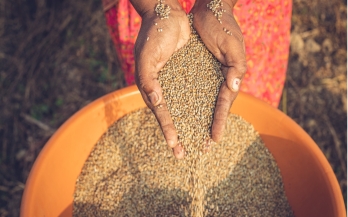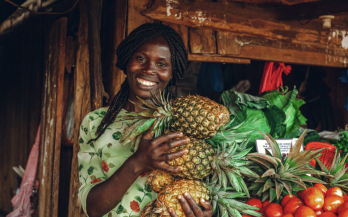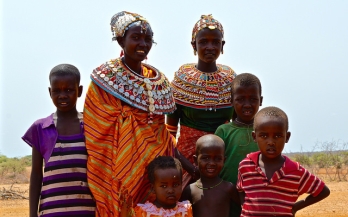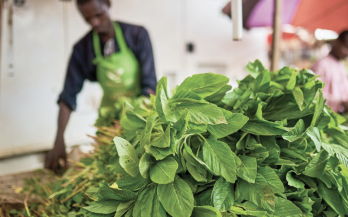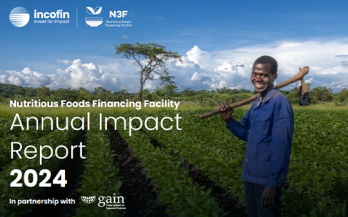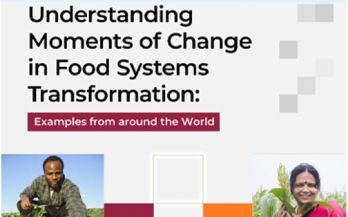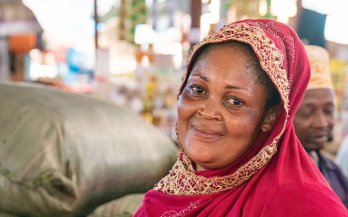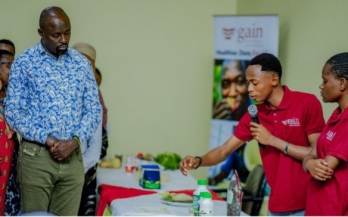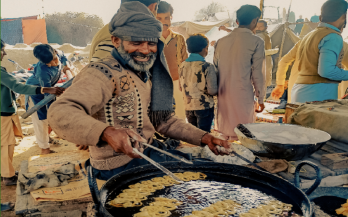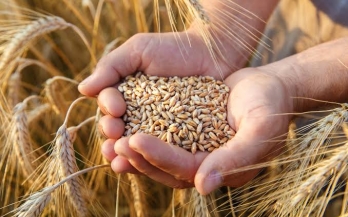- 12/08/2025
Clear measures of progress on food system transformation can provide decision-makers with the visibility to course-correct to realise desired impacts and can help ensure accountability. To this end, there is a need to develop, test, and validate novel methods and metrics for assessing food systems transformation. To ensure that such work is grounded in local food system stakeholders’ needs, GAIN consulted national stakeholders across four Asian countries (Bangladesh, India, Indonesia, and Pakistan) to identify priority indicator gaps for monitoring food systems transformation. These consultations drew from an analysis of each country’s food system transformation pathway, existing indicators, and the results from similar stakeholder workshops in Africa. National stakeholder workshops were held with diverse participants in three of the countries, while stakeholder interviews were used in India.
Across all countries, some similar themes emerged, such as sustainable and climate-smart agriculture, small and medium-sized enterprises, food safety and quality, consumption behaviour, policy alignment, and food system governance. There was a strong focus on policy actions, sustainability, and resilience as crosscutting themes. Women and youth were mentioned as groups requiring particular attention in metrics development, including the wage disparities between men and women, inclusion of women and youth in decision-making process, and youth access to finance and agri-business. The results from the workshops will be used to inform GAIN’s future work in developing metrics and methods to understand and help countries track their food systems transformation.
- 25/07/2025
Kenya’s engagement in food systems transformation reflects a strong policy commitment and growing political will to address persistent food and nutrition security challenges. This ambition is evident in progressive national frameworks such as the National Food and Nutrition Security Policy (2011), Agricultural Sector Transformation and Growth Strategy (2019–2029), Agricultural Soils Management Policy (2023), and the newly launched National Agroecology Strategy for Food System Transformation (2024–2033).
These strategies are aligned with global and regional commitments, including the Sustainable Development Goals (SDGs), the Paris Agreement on climate change mitigation, and the Malabo Declaration on comprehensive African agricultural development, signalling Kenya’s intention to lead in advancing climateresilient and equitable food systems.
- 25/07/2025
Since the lead-up to the UNFSS, we have been supporting countries to draw up pathways to better food systems, and to begin walking the talk. But many constraints still hinder progress, and reforms are sorely needed.
That’s why we have worked with governments to develop and implement a series of practical tools to strengthen policy decision making processes and capacities. These are tools created to give users a hand over major, common barriers. They are also designed to align with or to support ongoing national processes, such as monitoring plans, or indeed continental and transnational ambitions, including the Comprehensive Africa Agriculture Development Programme (CAADP), and the seven aspirations of Agenda 2063 which call for a more prosperous, integrated, democratic, peaceful, pan- African, people-driven, and influential Africa by 2033.
The tools collected here can be instrumental: in diagnosing food systems to identify critical gaps and untapped opportunities; in shaping nimble action plans in line with national priorities; in identifying much-needed policy reforms to ensure sectors act alongside each other, rather than against; and in providing new ways to effectively navigate political, financial, and technical impediments. Barriers have stood in the path of meaningful progress for too long – we must break through them.
- 25/07/2025
Nigeria stands at a critical juncture in its food systems transformation journey. As Africa’s most populous nation with over 225 million people, Nigeria has demonstated significant political commitment to food systems transformation, explicitly embedding goals in its National Pathways to Food Systems Transformation and developing comprehensive policy frameworks following the 2021 United Nations Food Systems Summit.
The country’s engagement in global food systems transformation efforts led to the development of an implementation strategy for the National Pathways to Food Systems Transformation, coordinated by the Federal Ministry of Budget and Economic Planning, which serves as the National Convenor for this agenda.
- 22/07/2025
N3F’s 2024 Nutrition Impact: Expanding Access to Nutritious Foods Across Sub-Saharan Africa
The Nutritious Foods Financing Facility (N3F) released its first impact report, underscoring a strong selection of impactful investees enhancing nutrition across Sub-Saharan Africa. In 2023, the N3F portfolio collectively produced or facilitated access to over 647 million servings of nutritious food products, reaching an estimated 3 million end-consumers, the majority of whom are low- and middle-income households.
- 21/07/2025
Understanding Moments of Change in Food Systems Transformation
Four years on from the UN Food Systems Summit, how well are we progressing in transforming food systems so that they reduce hunger, increase access to healthy diets, reduce climate emissions, improve climate resilience, create good jobs, and nurture the environment? The numbers tell a mixed story. According to the Food Systems Countdown Initiative, itself a creation of the UNFSS, only 20 of 42 global food system indicators are trending positively (1), with none fast enough to meet 2030 SDG goals. These numbers are important but inevitably reliant on data that are 2–3 years out of date.
- 21/07/2025
Malnutrition in all its forms continues to be a major public health challenge worldwide, and progress on improving it has been very slow, with no country on track to meet global nutrition goals and the number of people affected by hunger or unable to afford a healthy diet rising in recent years.
- 10/07/2025
The UN Food Systems Summit (UNFSS) was the first time youth were actively invited to be equal participants in a global food or nutrition summit. Youth played a pivotal role in UNFSS, contributing diverse perspectives to transform global food systems. Through youth-led dialogues, leadership in action tracks, and the UNFSS Youth Constituency, young people influenced policies, showcased innovative solutions for sustainability, and championed intergenerational equity. A key outcome of UNFSS was the Food Systems Pathways, which set out countries’ approaches for transforming their food systems to be more sustainable, inclusive, and resilient, aligned with the Sustainable Development Goals.
- 09/07/2025
Food culture is often understood as the practices, beliefs, and traditions surrounding food and eating within a particular society or community. It encompasses various aspects of traditional dishes and recipes, culinary techniques and cooking methods, mealtime rituals, social aspects, and symbolism. Food culture in a critical factor shaping food choices by influencing eating and dietary norms and habitual behaviours. Given this, it is essential to clearly define the dimensions of food culture (particular to a country or region) if one is to seek to leverage its profound impact on individuals and communities. This working paper thus explores the multidimensional nature of food culture in India, emphasising its deep-rooted connections to cultural identity, social bonding, and wellbeing.
- 19/06/2025
THE OPPORTUNITY In Pakistan, where wheat is a daily staple, an invisible crisis is unfolding. Over 60 million people suffer from inadequate zinc intake, contributing to malnutrition and economic losses of nearly 3% of the country’s GDP. Zinc deficien cy plays a critical role in stunted growth among children, leading to impaired cognitive development that hampers learning abilities and future economic opportunities.
